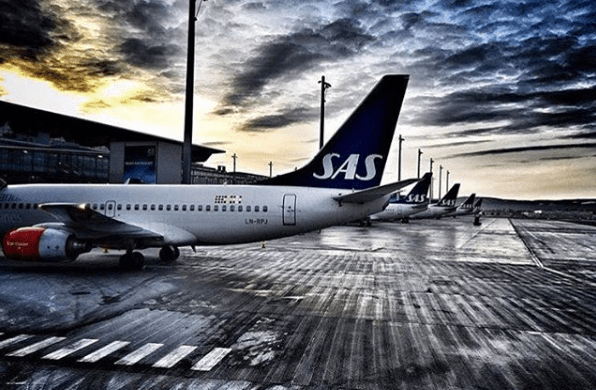Should Sweden impose an airplane tax, as its government has been considering since late last year, the Scandinavian airline SAS has threatened to move all intercontinental flights from Stockholm to Copenhagen and Helsinki.
In a hearing answer, SAS informed the Swedish government that its prospective tax would lead to a 35 million kroner extra tax bill for the airline on its intercontinental flights annually.
“The traffic will move from Stockholm to Copenhagen and Helsinki,” SAS warned the Swedish government.
“Firstly the move will involve intercontinental traffic – an area for which the proposed Swedish taxation will be very high.”
READ MORE: SAS to establish bases in the UK, Spain and possibly Ireland
Local impact
On November 30 last year, the Swedish government announced it was considering an airplane tax from 1 January 2018. The tax will aim to reduce the impact of air traffic on the climate and could net the Swedish state about 1.75 billion Swedish kroner annually (1.36 billion Danish kroner).
More specifically, every flight to a European destination would be taxed 80 Swedish kroner, while flights outside Europe would be taxed 280 kroner. Longer intercontinental flights would be taxed a full 430 kroner.
SAS said that aside from moving long-haul flights to Copenhagen, the tax could also force the airline to shut down local flights within Sweden.
Moreover, the airline complained that larger state-owned Middle Eastern airlines, which have considerably deeper pockets and would therefore be able to absorb the tax more easily, would increase their domination in the Scandinavian market.















